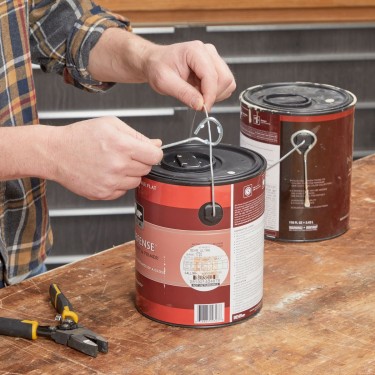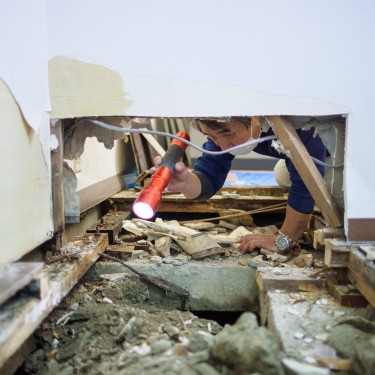Flashlights do more than brighten up a dark room. Here are some brilliant flashlight tips and tricks that just might surprise you.
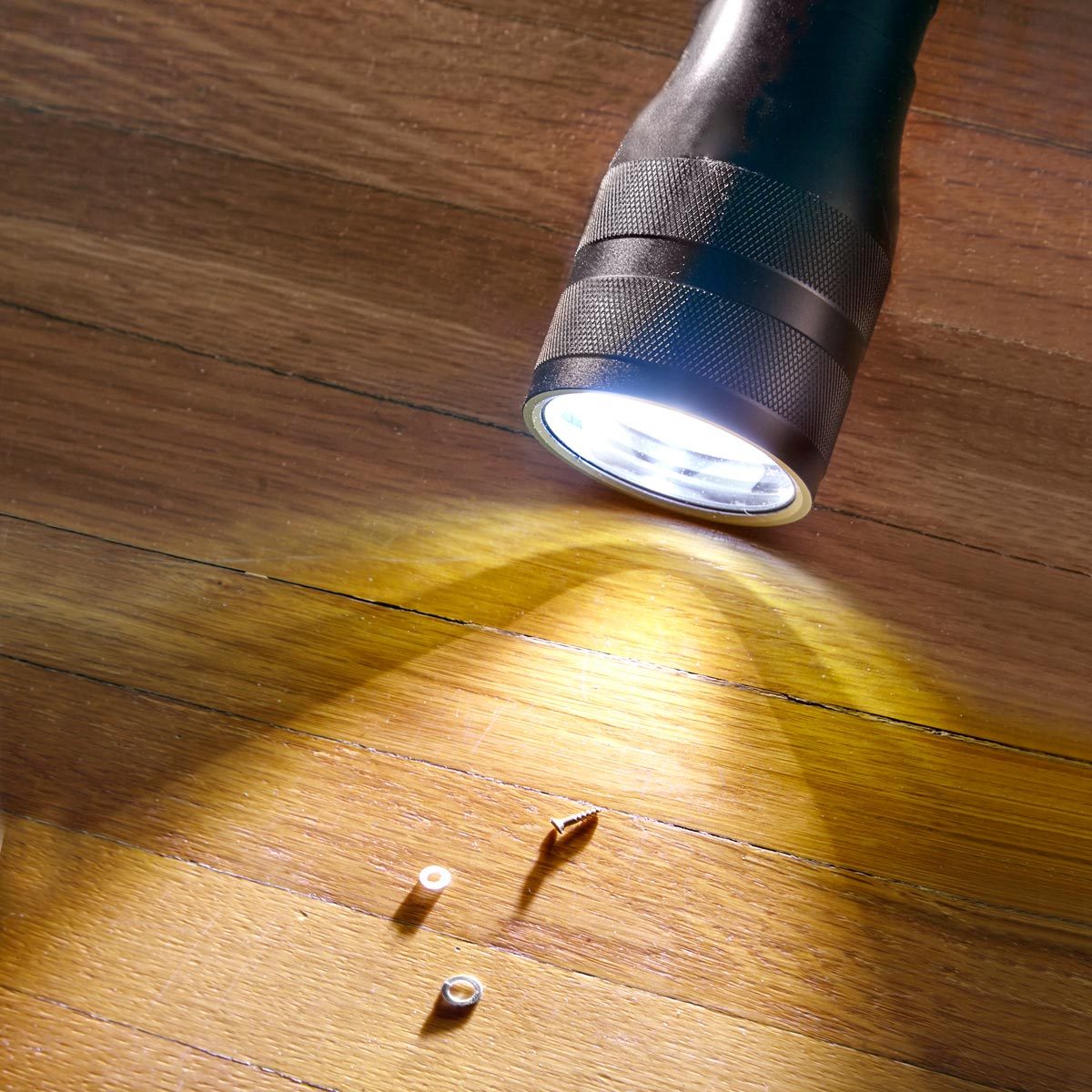
Use a Flashlight to Look for Shadows
Doesn’t it drive you nuts when you drop a small part on the floor and can’t find it? Here’s help. Lay a flashlight on the floor and slowly turn the light in a circle so it just skims the floor surface. The shadow cast by the lost part will help you spot it. — Gary Stewart.
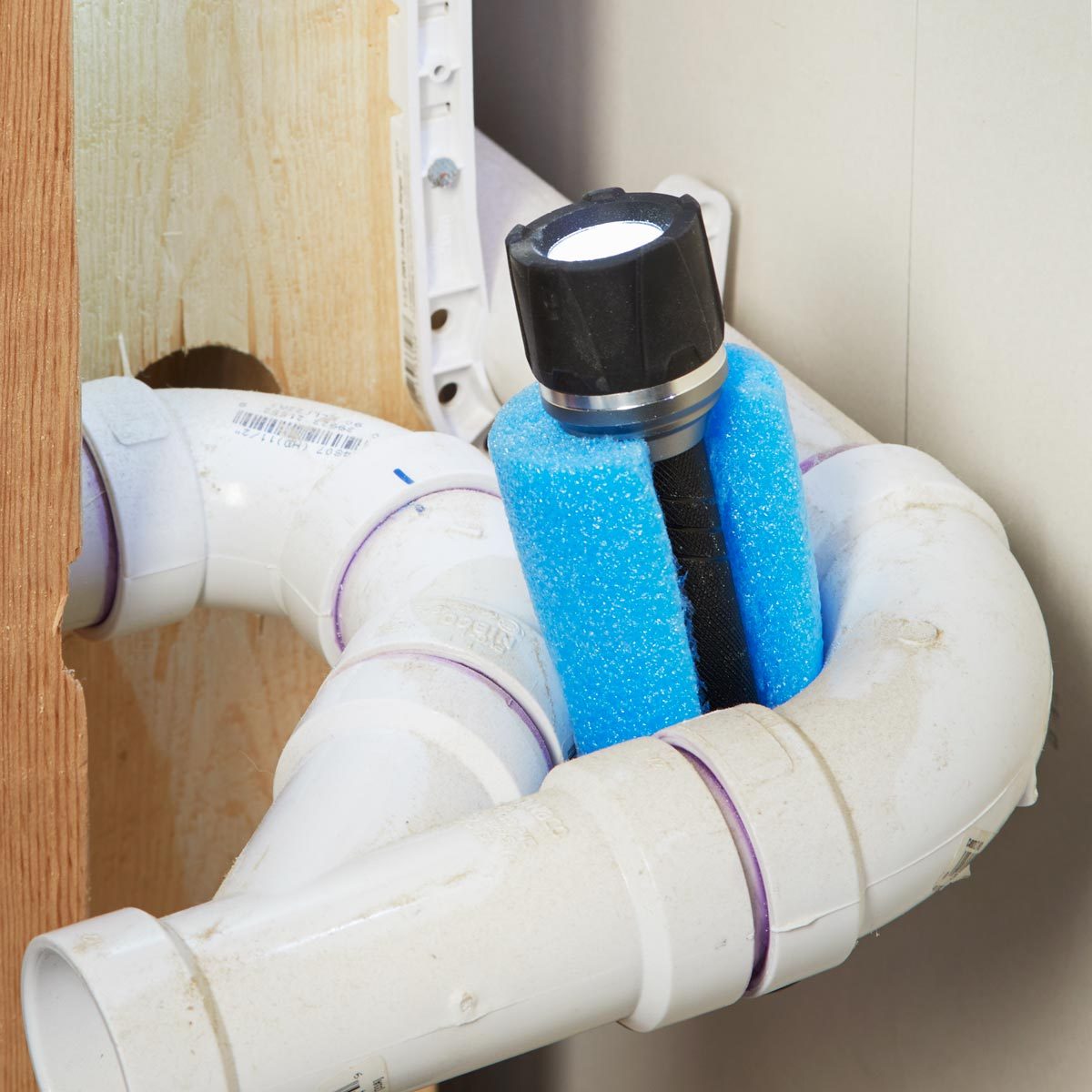
No-Roll Mini Work Light
Cut a small section of foam pipe insulation or a swim noodle and wrap it around a small LED flashlight. Wedge the foam into any crack, crevice or corner. – Costas Stavrou.
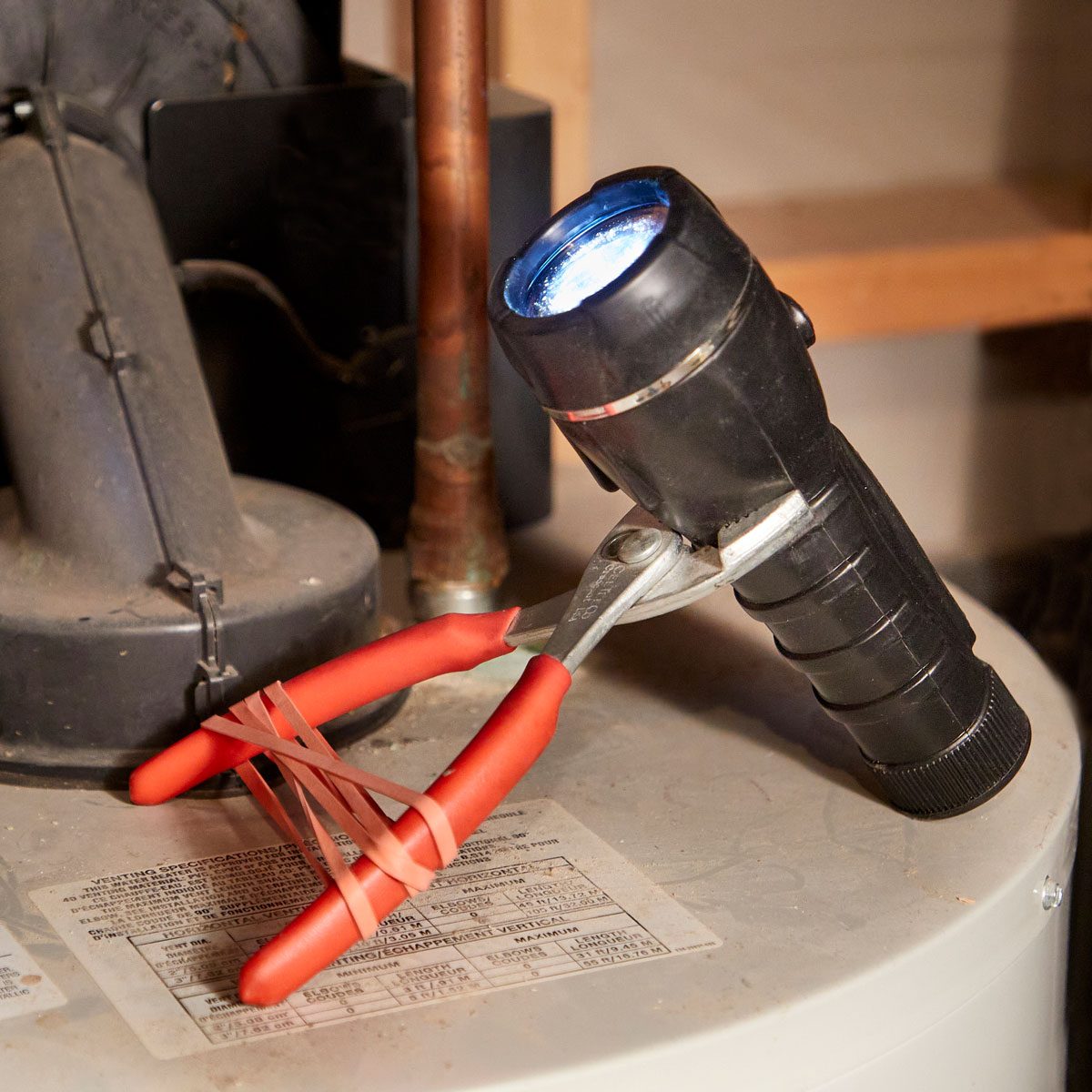
Hands-Free Light Hack
Make a hands-free light in a snap with a flashlight, a pair of pliers and a rubber band. Place the flashlight in the jaws of the pliers, then wrap a rubber band around the handles. That’s it! Point the light wherever you need it.
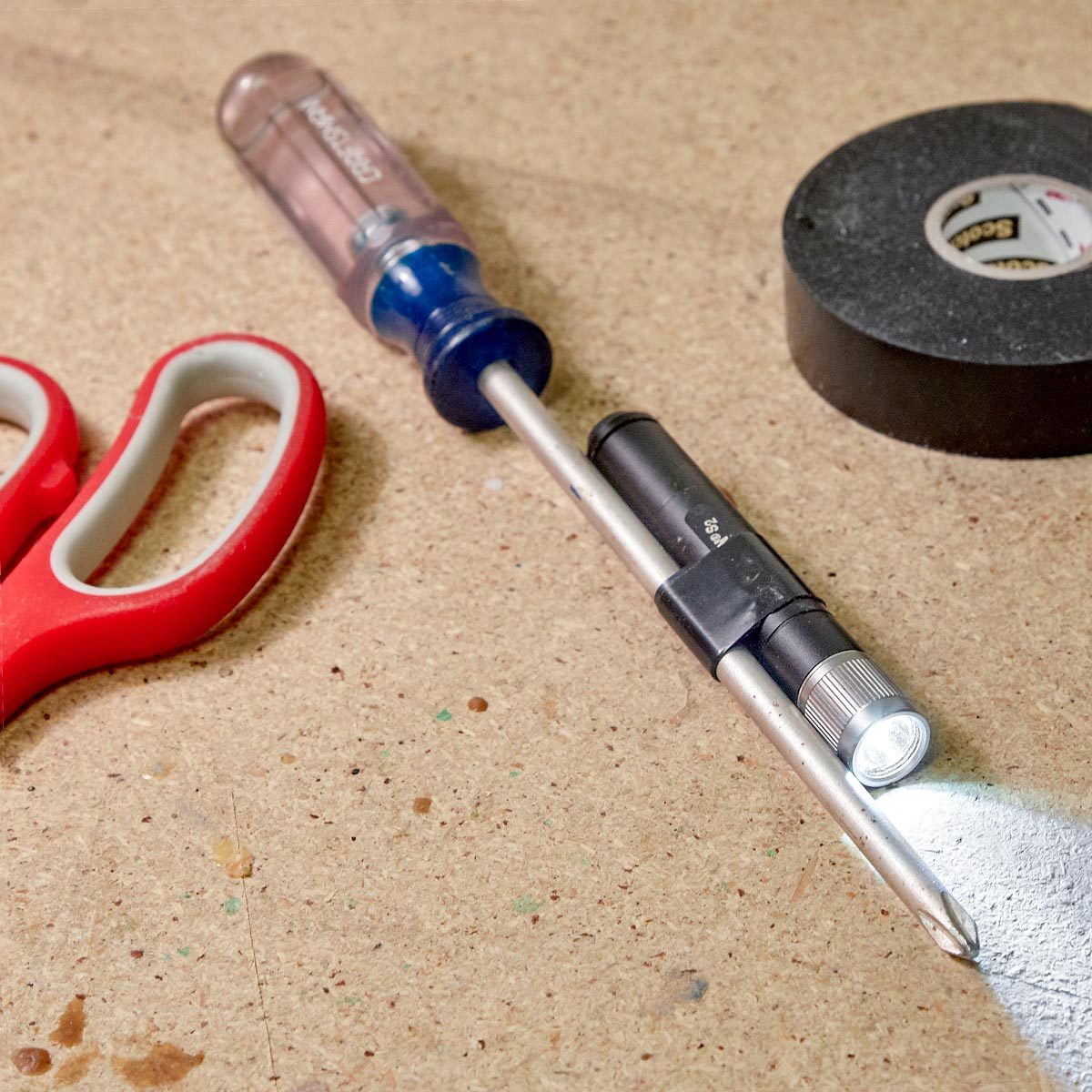
Lighted Screwdriver Hack
No need for fancy hand tools with built-in LED lights; opt for this lighted screwdriver hack instead. Just tape a keychain-size flashlight to the shaft of a screwdriver. In a dark space like inside a cabinet, it’ll shine the light right where you need it.
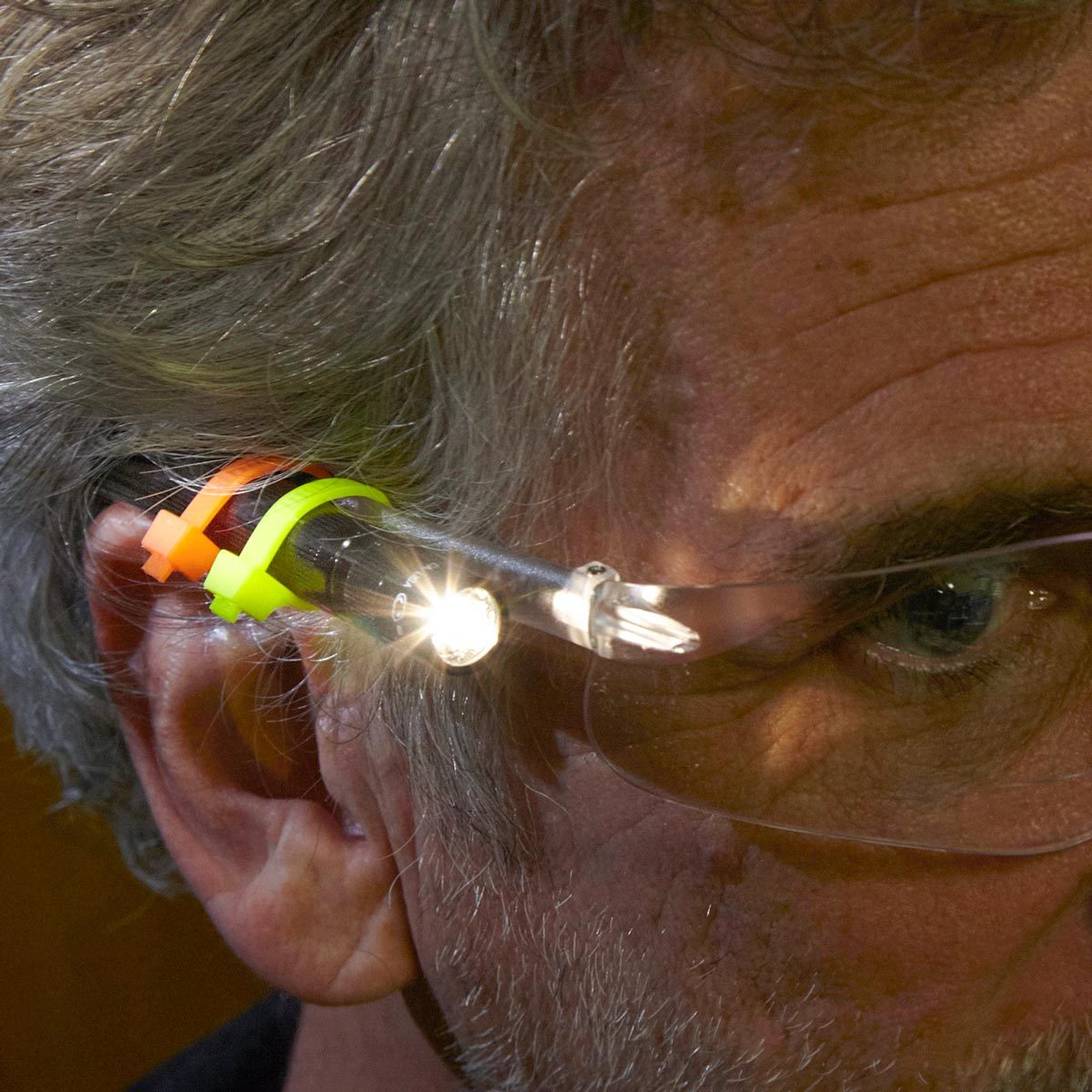
Hands-Free Light
I was working under the kitchen sink and couldn’t see what I was doing, so I used zip ties to attach mini flashlights to a pair of safety glasses. Now I use this pair whenever I climb into the attic or attempt repairs in unlighted spaces. Everywhere I look is illuminated. — reader Nathan Rodgers.
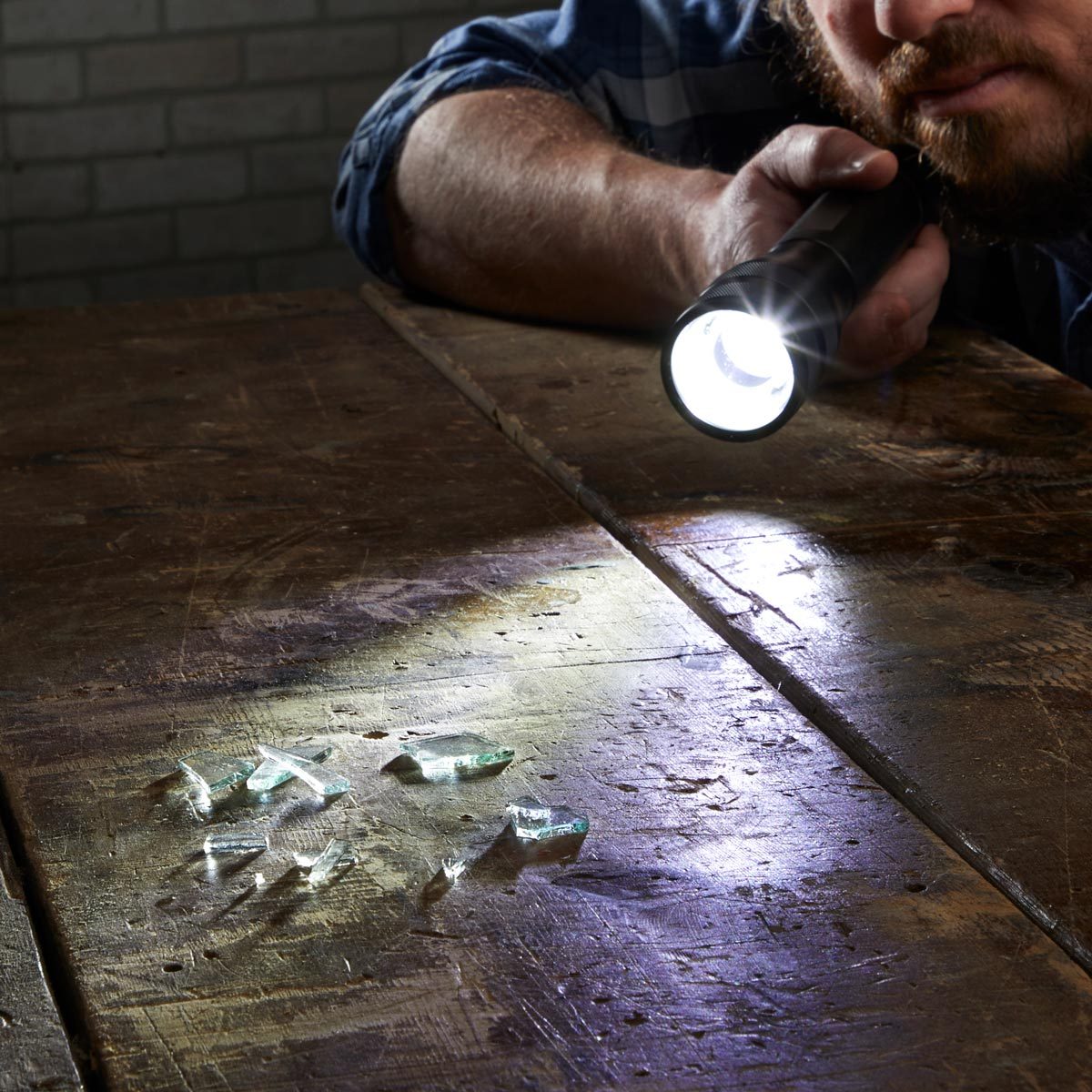
Flashlight Glass Finder
Cleaning up broken glass is a real pain, but it’s nothing compared with a glass shard in the foot. Here’s how to find them: Get a flashlight and turn off the overhead lights. Scan the floor from a low angle and the shards will glisten, making even the tiniest piece stand out.
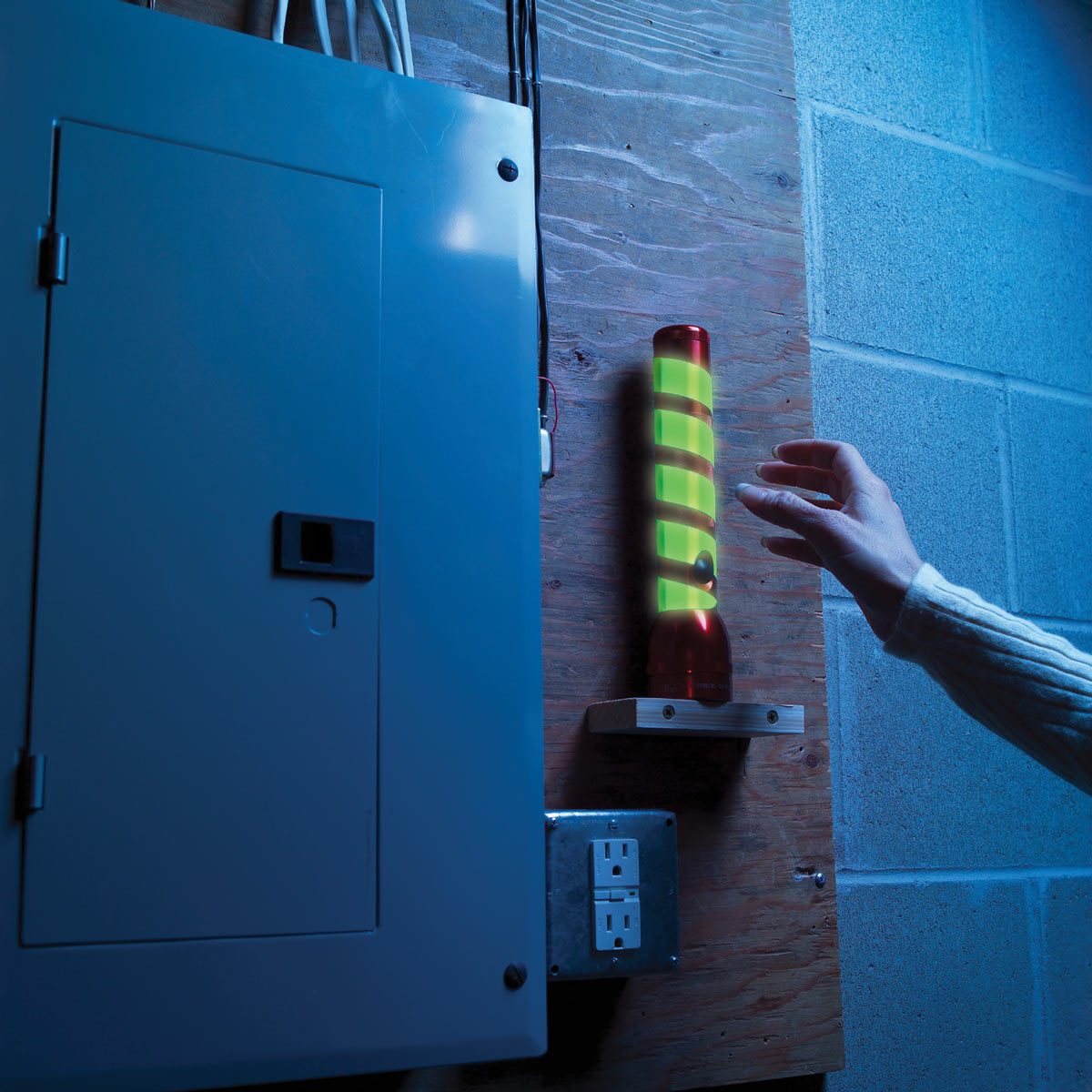
Find a Flashlight
When the power goes out, you’ll be groping in the dark for a flashlight — unless you wrap one with glow-in-the-dark tape. The tape glows for about eight hours after exposure to light.
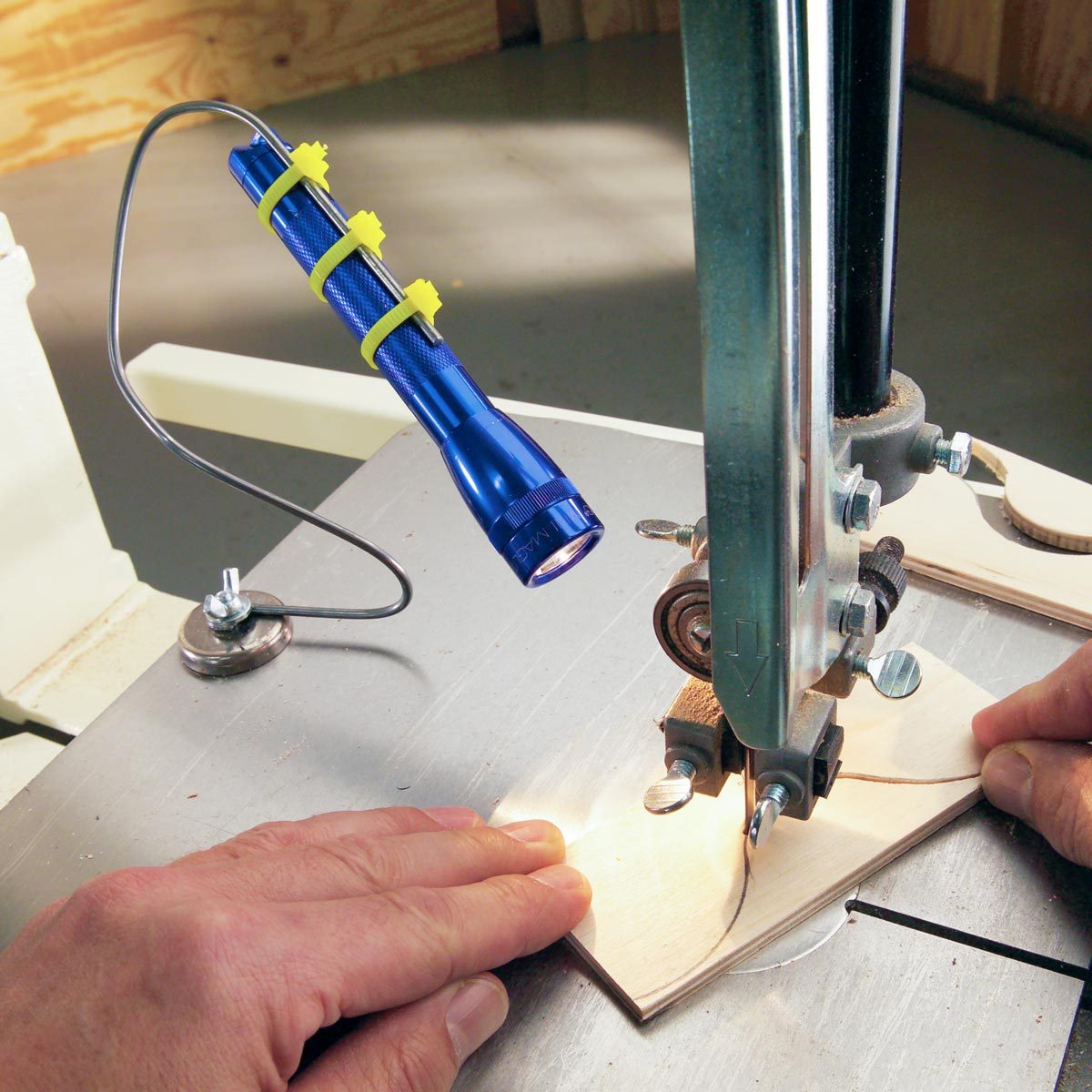
Spotlight for Woodworking
Focus a bright beam of light on your layout lines when you’re doing fine work on a band saw or scroll saw. All you need is a 1-1/2-in. round base magnet with a hole in the center, a Mini Maglite flashlight and a 1/8-in.-thick steel rod.
Bend an eyelet in the end of the rod and bolt it to the magnet. Then strap the flashlight to the other end with zip ties. The setup will stick to any steel or cast iron surface, so you’ll see what you’re sawing! Our thanks to Gary Brandhorst for this tip.
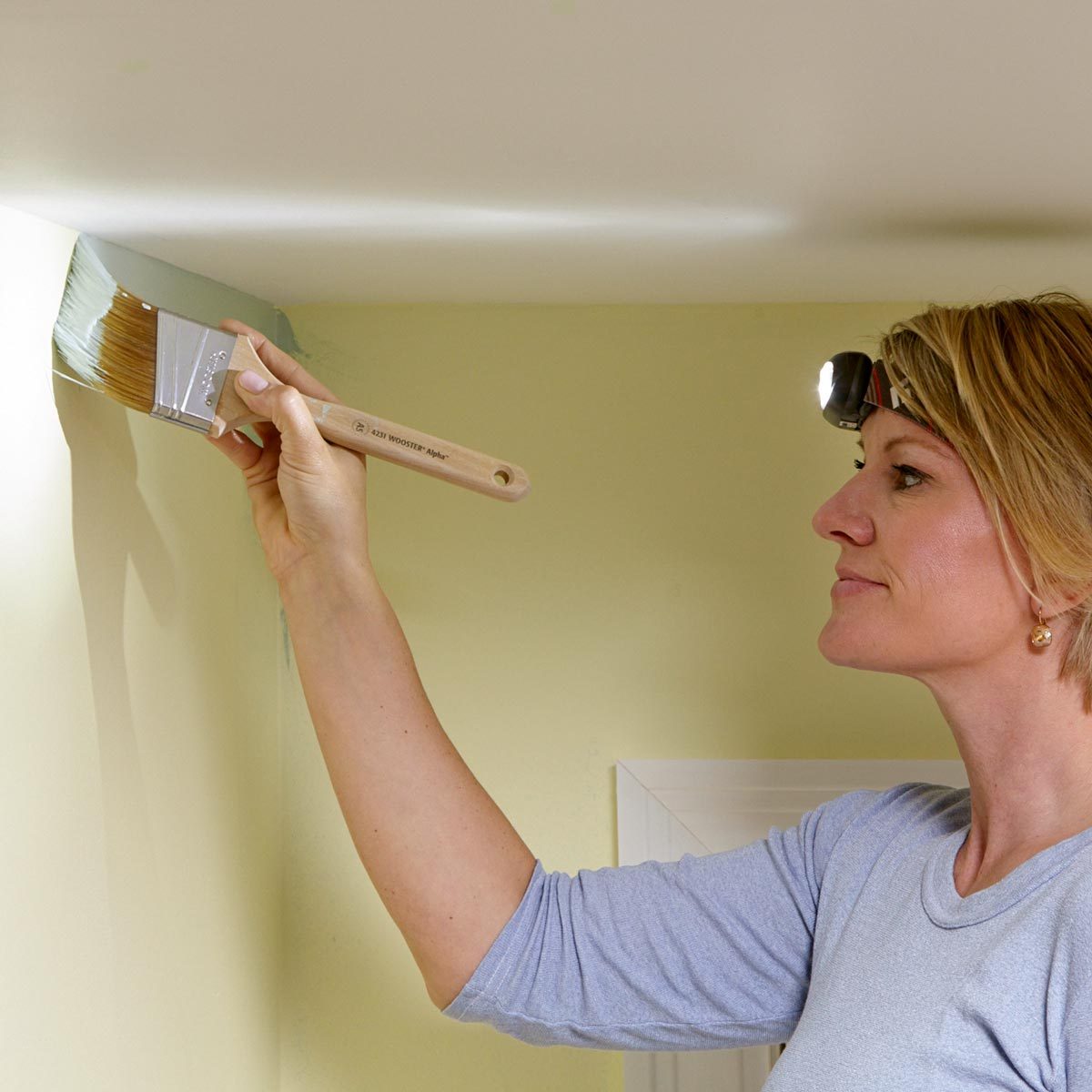
Paint Better With Better Lighting
To paint an accurate cut-in line, you need to position yourself to see the line clearly, and you need bright light. One of our Field Editors told us to use a headlamp and it really helps. For cutting in along the ceiling, get your head close to the ceiling for the best view of the cut-in line.
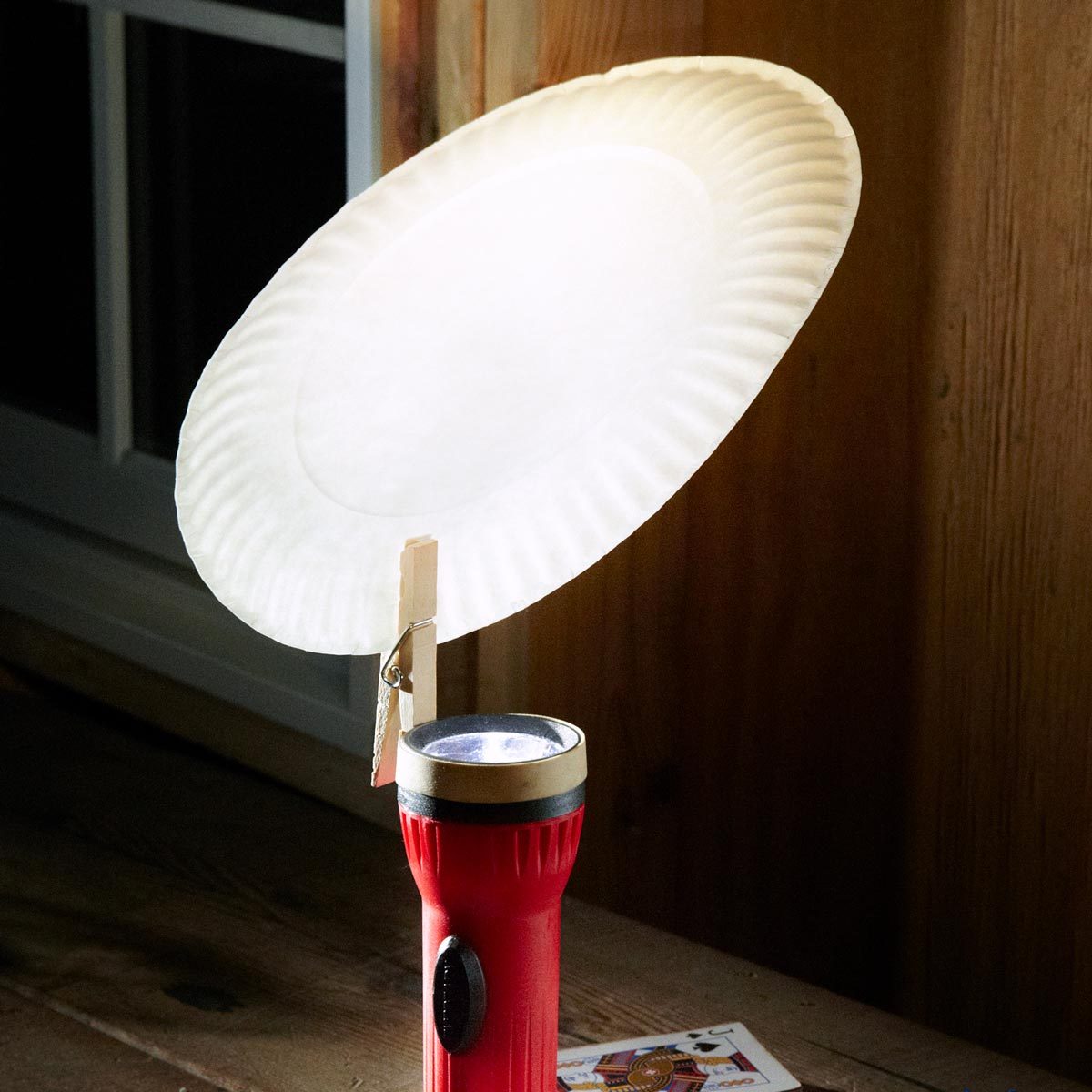
Beam More Powerfully With a Paper Plate
When there’s a power outage, we usually hunt for a flashlight. This is helpful but limited to a small concentrated beam. Broaden that light with a white paper plate, rubber band and clothespin. The plate can be bent to spread the light over a larger area. This means we can still play cribbage when we’re up at the cabin! — Jack R. Reynolds.
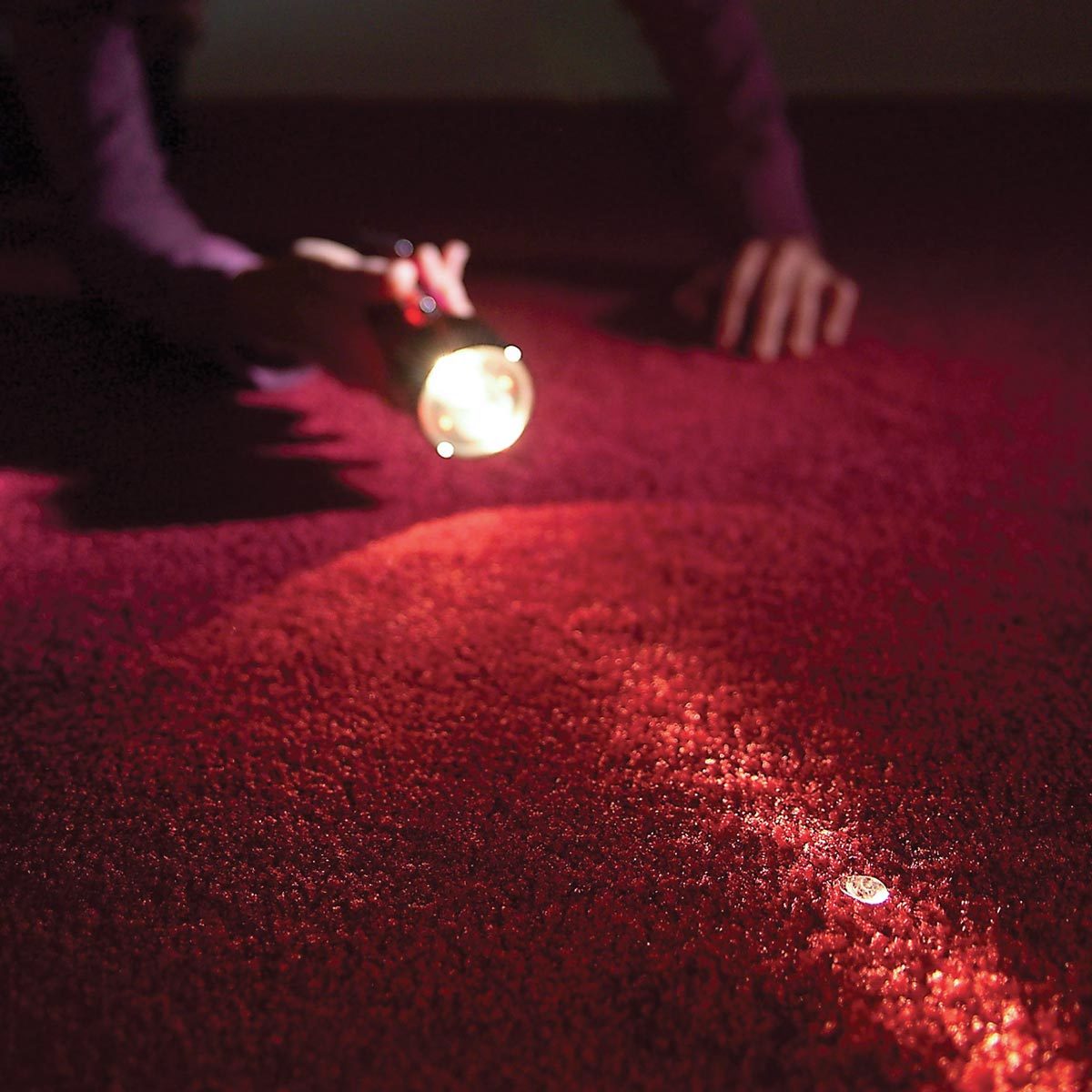
Look for a Glimmer
When your drop something small and can’t find it, turn out the lights and shine a flashlight across the floor. Transparent items like a contact lens will glimmer.
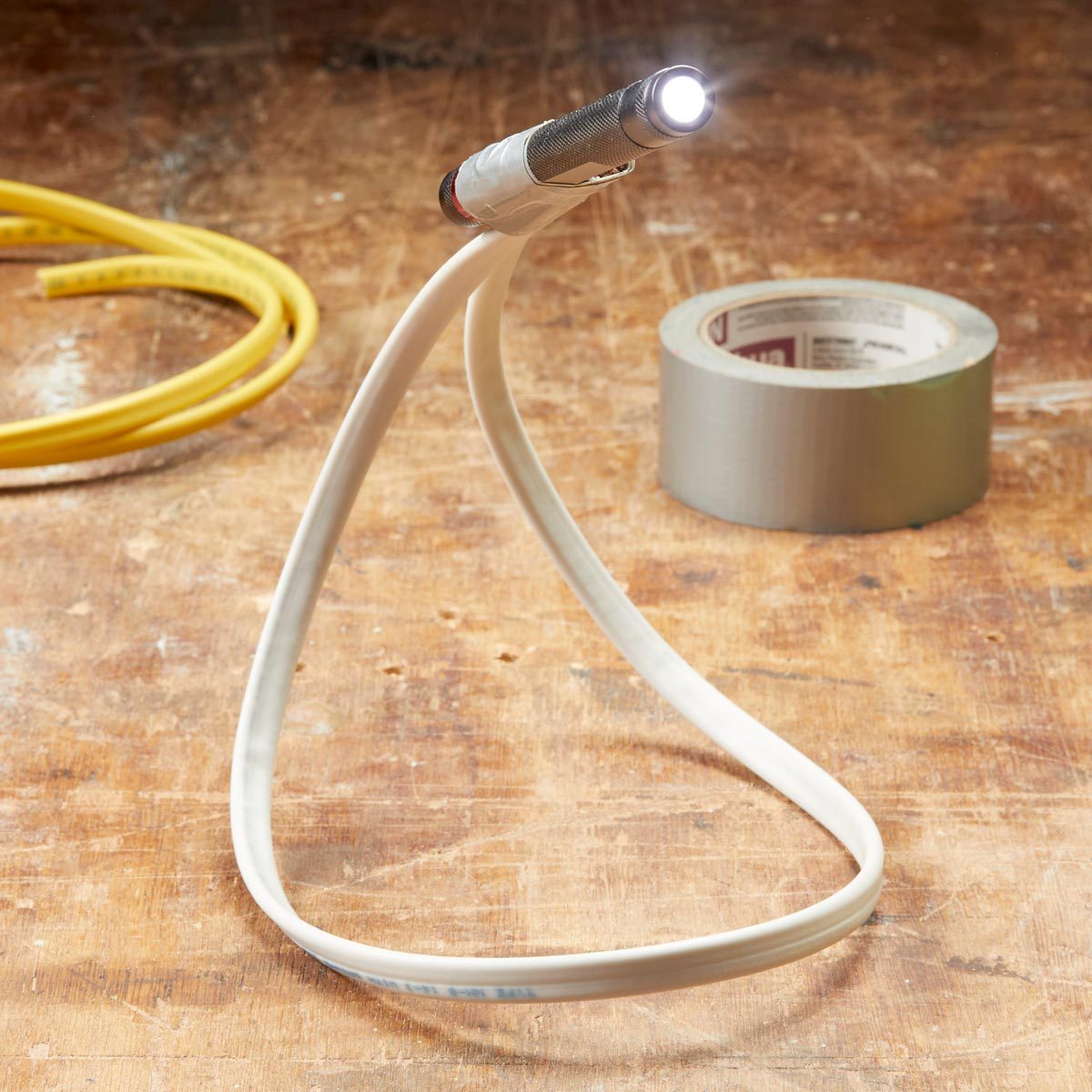
Electrical Cable Flashlight Mount
Tired of holding a flashlight between your teeth while working in the dark? Make a light stand by bending a two-foot section of 12- or 14-gauge electrical cable into a U shape. Attach the light to the ends of the cable with duct tape. The wire can be shaped into a hands-free supporting base for the flashlight or bent into a hook for hanging. — Paul and Haylee Lytle.
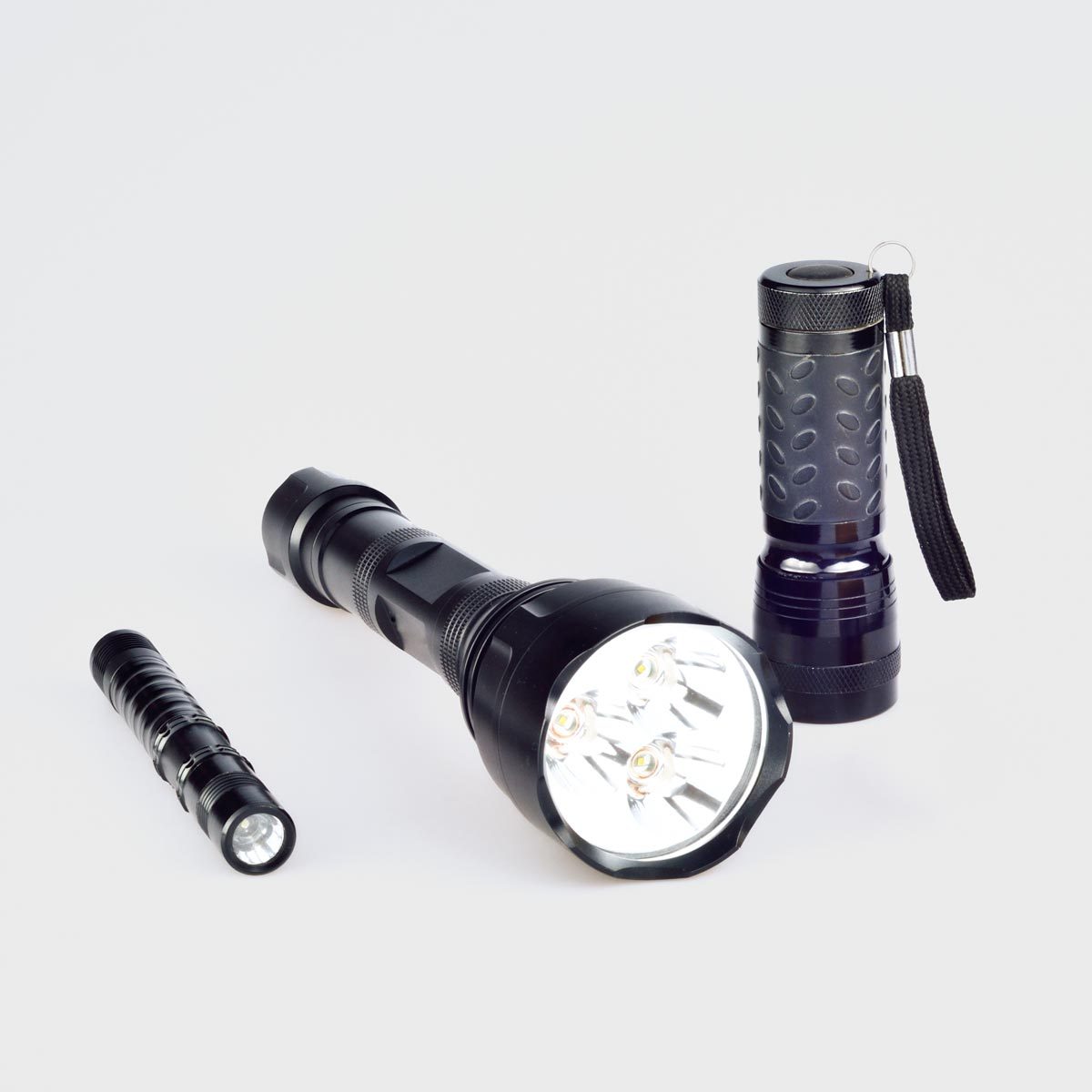
Conserve Batteries With LEDs
During a power outage, LED flashlights and lanterns have a huge advantage over incandescent models: They allow batteries to last much longer, typically about six to ten times.
And LED technology isn’t just for flashlights. Consider using “puck” lights designed for under-cabinet lighting. Stick them in bathrooms, bedrooms and hallways so you don’t have to stumble around in the dark.

